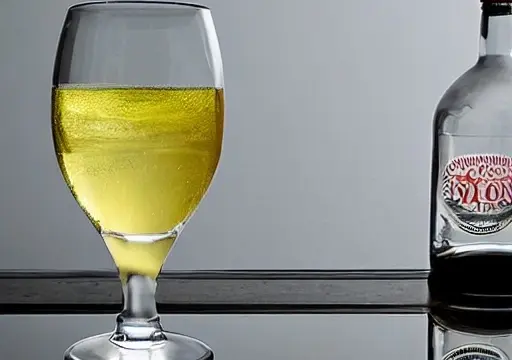Have you ever wondered how alcohol affects your brain function? Some people think of it as a stimulant that can give you energy and increase your heart rate, while others believe it to be a depressant. So, which is it? Keep reading to find out!
The effects of alcohol depend on the person’s size, weight, and health. Alcohol is a depressant for most people but can act as a stimulant in small doses. Drinking too much alcohol can lead to liver damage, cancer, and death.
What is alcohol?
Alcohol is a psychotropic substance that is derived from carbohydrates. Most commonly consumed in the form of beer, wine, and spirits, it is one of the oldest known drugs used by humans throughout history for many different purposes; whether it being for ceremonial and religious rituals, or simply to quench an individual’s thirst during social gatherings.
The effects of alcohol can range from a sense of elation and relaxation to more dangerous side effects such as impaired movement and changes in behavior. Whatever the reason may be for consuming it, alcohol has played an ever-present role in societies across the world.
Stimulants vs. depressants
Stimulants and depressants are two different classes of drugs that have distinct characteristics.

Stimulants increase alertness and can make individuals feel energized. it acts on the central nervous system to raise blood pressure and heart rate as well as speed up breathing.
Stimulant users often experience increased energy levels, increased focus, and elevated moods.
Depressants slow down mental and physical processes, creating a relaxed state. It acts on the brain reducing stress and calming tension to create a feeling of relaxation.
Depressants work by decreasing heart rate and respiration making users feel drowsy or lazy.
Stimulants and depressants are drugs that have unique effects depending on the user’s objectives when taking them.
Stimulant effects of alcohol
Alcohol has a stimulating effect that can lead to higher levels of concentration. While the initial effect can be one of feeling calm and relaxed, continued drinking serves as a stimulant.
This is because it releases dopamine, the hormone which creates feelings of pleasure and satisfaction in the brain. It’s important to be aware of this effect of alcohol, as it can cause people to drink more than they wanted or intended to. Moderation is always key for safe consumption.
The amount of alcohol in a beverage can be different depending on the type of drink. For example, a standard beer may contain about 5% alcohol, whereas one serving of a distilled spirit could contain 40% alcohol.
Depressant effects of alcohol
Alcohol may have a calming effect in the short term, however, its depressant effects can cause major concerns.
The amount of alcohol in your blood affects how drunk you feel. Your blood alcohol content (BAC) goes up when you drink. As your BAC gets higher, you might start to slur your words, have trouble walking, pass out, or feel very sleepy.
Reduced inhibitions can lead to other major issues such as internal and external harm or aggressive behavior. The depressant effects of alcohol can be highly detrimental to physical and mental health if BAC is not understood and kept in check.
Alcohol use disorder
Alcohol use disorder (AUD) is a major yet often overlooked issue. Unregulated and excessive alcohol intake can have serious consequences for the individual, their family, and friends, as well as for society in general.

Some people are more likely than others to develop AUD. This may include people:
- Physical and mental health,
- Reduces self-confidence
- Damages relationships
- It places strain on public services such as the health system or police forces.
- It has implications for occupational productivity,
- Drinking alcohol can make it harder to think clearly and make good decisions.
- It also increases the risk of getting hurt.
Therefore it is important to keep an eye out for signs of dependence on alcohol and reach out to friends or family who may be going through this struggle. Support systems such as community centers or AA meetings are also important sources of assistance.
We must come together to confront the issue and provide people with the help they need in confronting their addiction.
Frequent questions asked
is alcohol a stimulant drug?
Yes, alcohol is classified as a stimulant drug. It has stimulating effects on the Central Nervous System, increasing blood pressure and heart rate, and speeding up breathing.
is alcohol a carcinogen?
No, alcohol is not classified as a carcinogen. However, there are links between heavy drinking and certain types of cancer, such as breast cancer in women. It is important to drink responsibly and in moderation.
Can alcohol be beneficial?
Yes, in small doses and when enjoyed responsibly, alcohol can be beneficial. It can help reduce stress and anxiety, and it has been found to have some protective qualities against cardiovascular disease.
is alcohol mouthwash bad?
Yes, alcohol-based mouthwash can be bad for your oral health. It can dry out your mouth and increase the risk of cavities and tooth decay. It is best to choose alcohol-free mouthwashes or natural alternatives such as baking soda and water.
is alcohol bad for your heart?
In excess, alcohol can have negative effects on the heart. It can increase blood pressure and lead to arrhythmias (irregular heartbeat), as well as increase the risk of stroke and heart failure. It is advised to drink alcohol in moderation for the best cardiovascular health.
Bottom Line
Now that we know a bit more about alcohol, let’s talk about using it responsibly. If you or someone you know is struggling with alcohol abuse, please reach out for help.
There are many resources available to those who need them and no one should have to go through this alone. Remember, moderate drinking is the key to responsible alcohol consumption.
As always, if you have any questions or comments feel free to let me know in the comments below!
